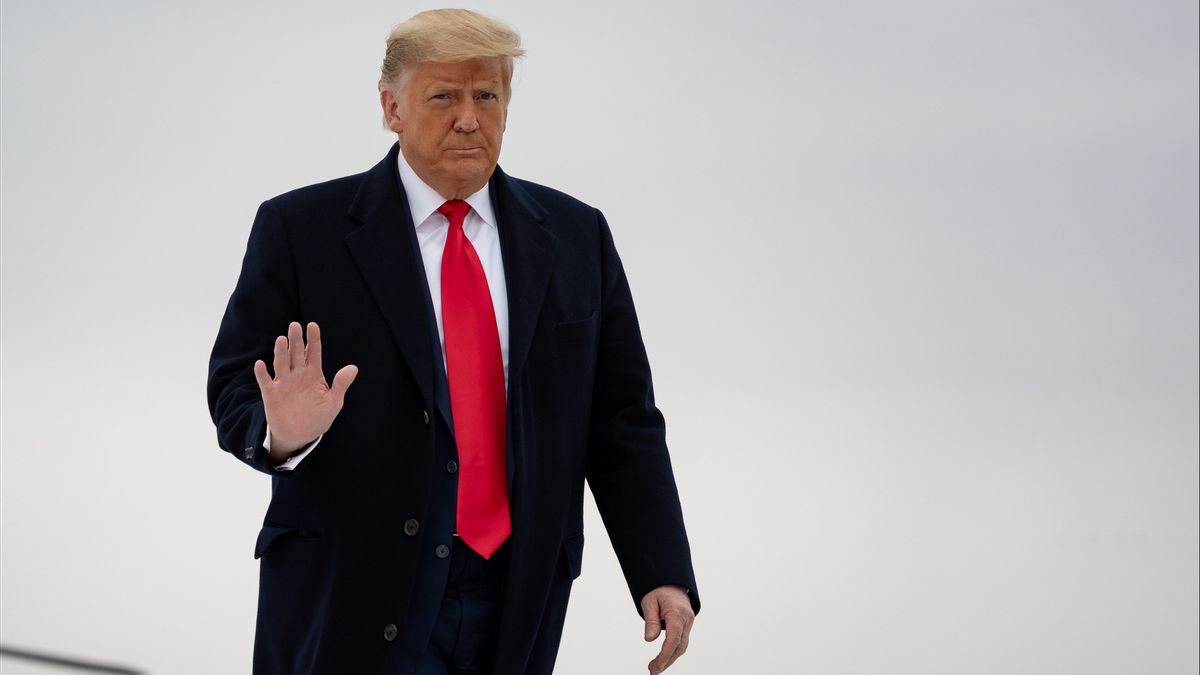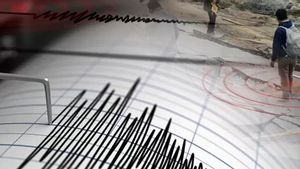JAKARTA - Former President Donald Trump asked the Supreme Court on Thursday to block a request for White House records from a House elected committee investigating the Jan. 6 Capitol Hill, Washington DC riots by a group of his supporters.
The request came two weeks after two lower courts rejected Trump's argument that the records were protected by executive privilege, a legal doctrine that allows some White House communications to be kept secret.
President Joe Biden is known to have refused to seek privileges over the disputed documents.
Meanwhile, the Supreme Court is under no obligation to hear Trump's lawsuit, which seeks to prevent the National Archives from providing House committees with hundreds of pages of records from Trump's White House.
The former president asked that until the Supreme Court decides whether to take his case, it blocks the records from being sent to the panel temporarily.
On Thursday, lawyers for the Jan. 6 House committee asked the Supreme Court to act faster than normal required in considering whether to accept the case, citing the "undeniable importance and urgency of the elected committee's investigation."
"A delay will inflict serious injury on the elected committee and the public," said the panel's attorneys, arguing documents were needed now to help shape the direction of the investigation.
Separately, Trump's lawyers, in their petition seeking a review by the Supreme Court, said the House committee's request "implicates important constitutional and statutory issues arising from the Presidential Records Act, separation of powers, and executive privileges."
"A former President has the right to assert executive privileges, even after his term in office. Congress must not flip through secret presidential documents of a former President to fulfill political goals or advance case studies," the petition reads.
Trump's request to the Supreme Court to take his appeal comes as the elected committee saw his role in the January riots, when hundreds of Trump supporters violently stormed the Capitol and forced members of the House and Senate to flee their rooms.
The rioters, many of whom were driven by Trump's repeated lies that victory in the 2020 election had been stolen from him, temporarily stopped Congress from confirming Biden's Electoral College victory.
The committee is also investigating whether Trump sought to stop Congress from its official duty to count electoral votes.
Panel vice chair Liz Cheney of Wyoming, one of two Republican politicians on the nine-member committee, last week said "the key question before this committee is whether Trump, through action or inaction, is corruptly seeking to obstruct or hinder official Congressional process for counting electoral votes?"
A federal district judge last month ruled against Trump's attempts to keep records from the committee, writing that his stance "seems to be based on the idea that his executive powers 'exist for all eternity, not the President.'
In a dispute between the current and former presidents, "the incumbent's views are given greater weight," wrote Judge Tanya Chukan.
To note, Donald Trump appealed to the US Court of Appeals for the Circuit District of Columbia, but the court upheld Chukan's decision.
Meanwhile, President Biden and the Legislative Branch have demonstrated the national interest and urgent need for the immediate disclosure of these documents, the three-judge panel at the district court said in their Dec. 9 decision.
However, the appeals court granted Trump's request to temporarily pause the release of documents during litigation, giving Trump's attorneys 14 days to file a filing with the Supreme Court before the interim injunction is lifted.
The English, Chinese, Japanese, Arabic, and French versions are automatically generated by the AI. So there may still be inaccuracies in translating, please always see Indonesian as our main language. (system supported by DigitalSiber.id)












